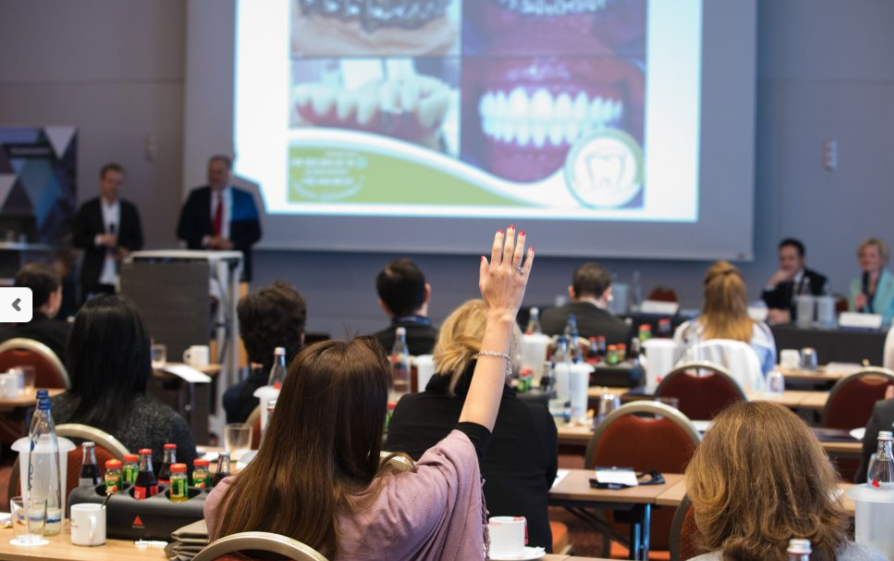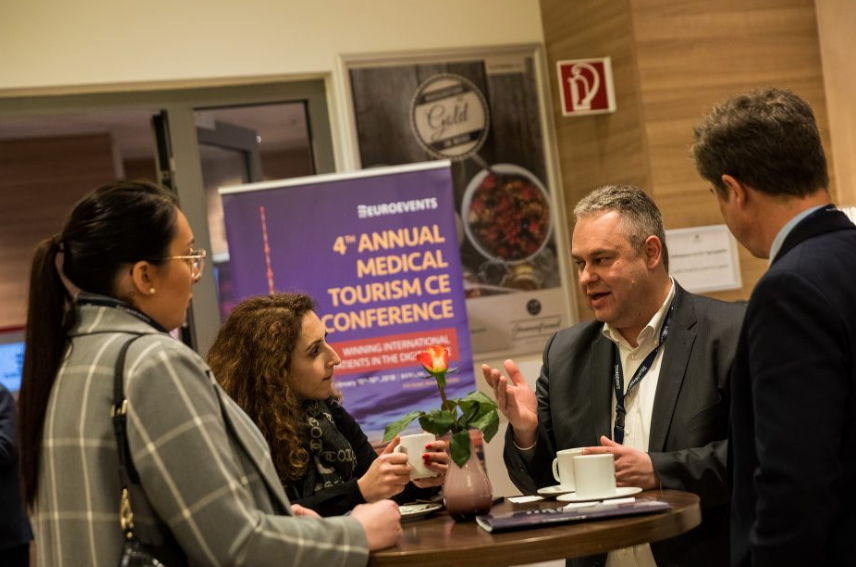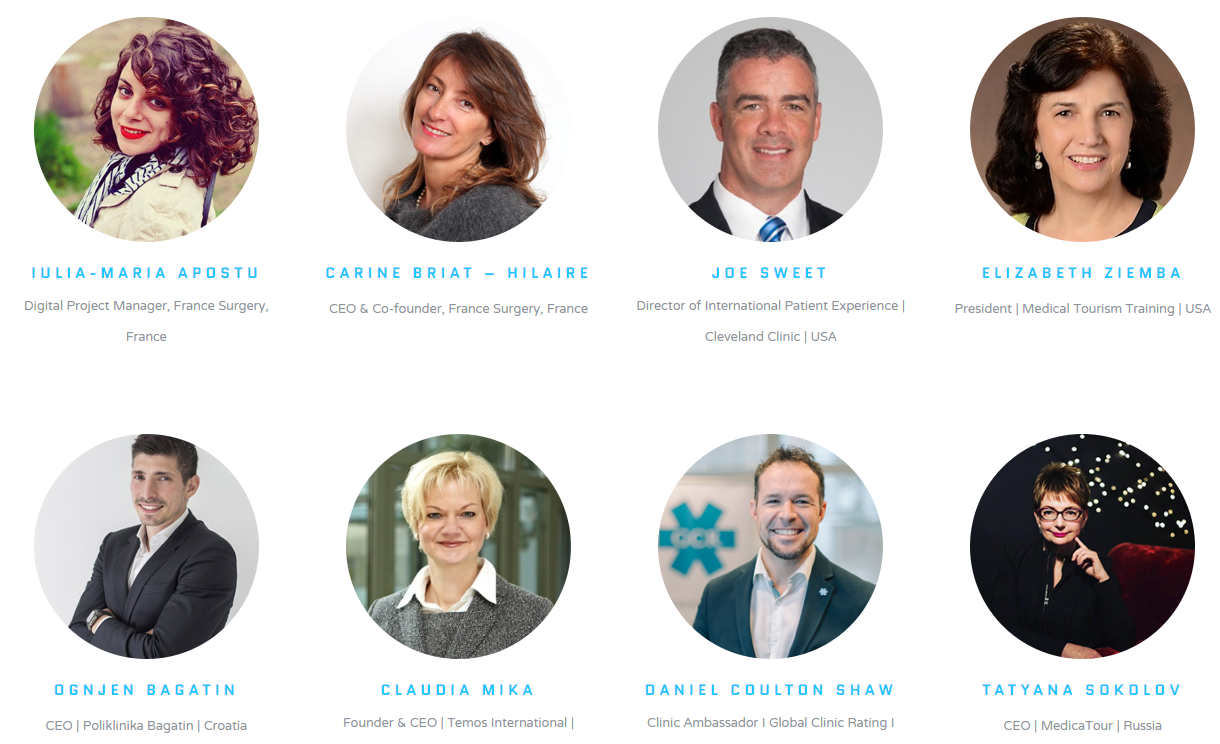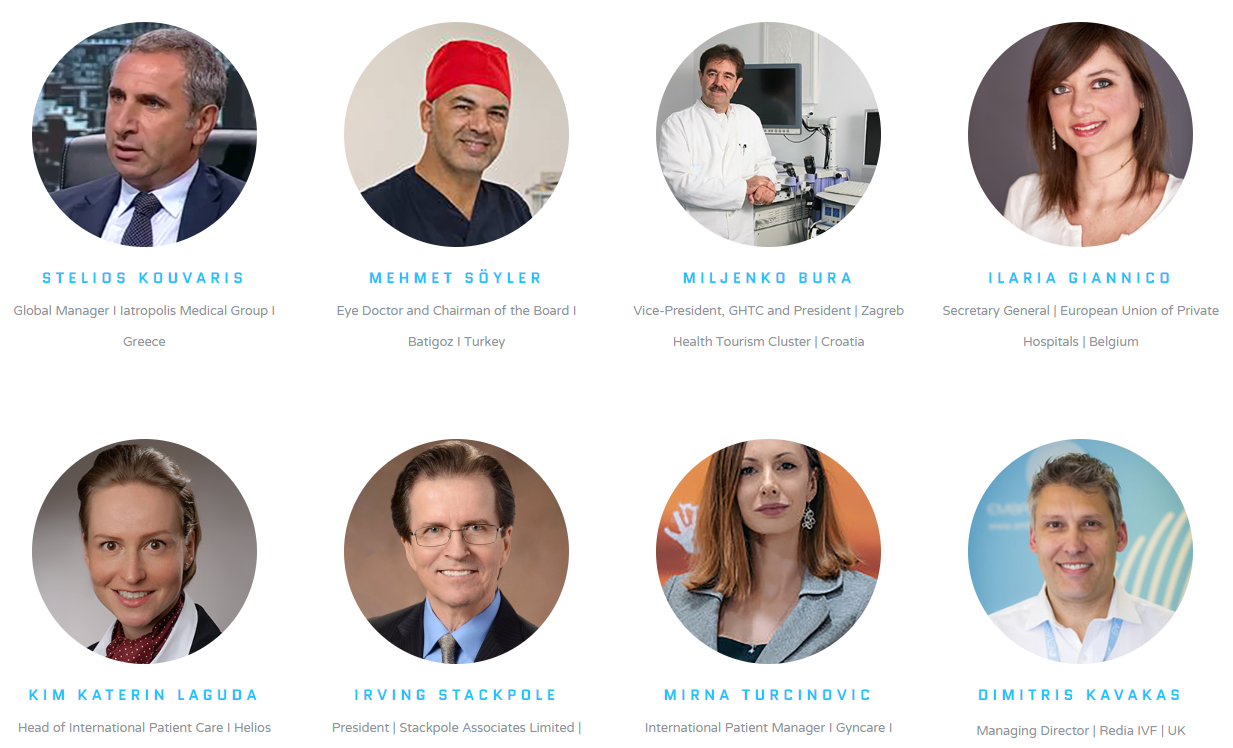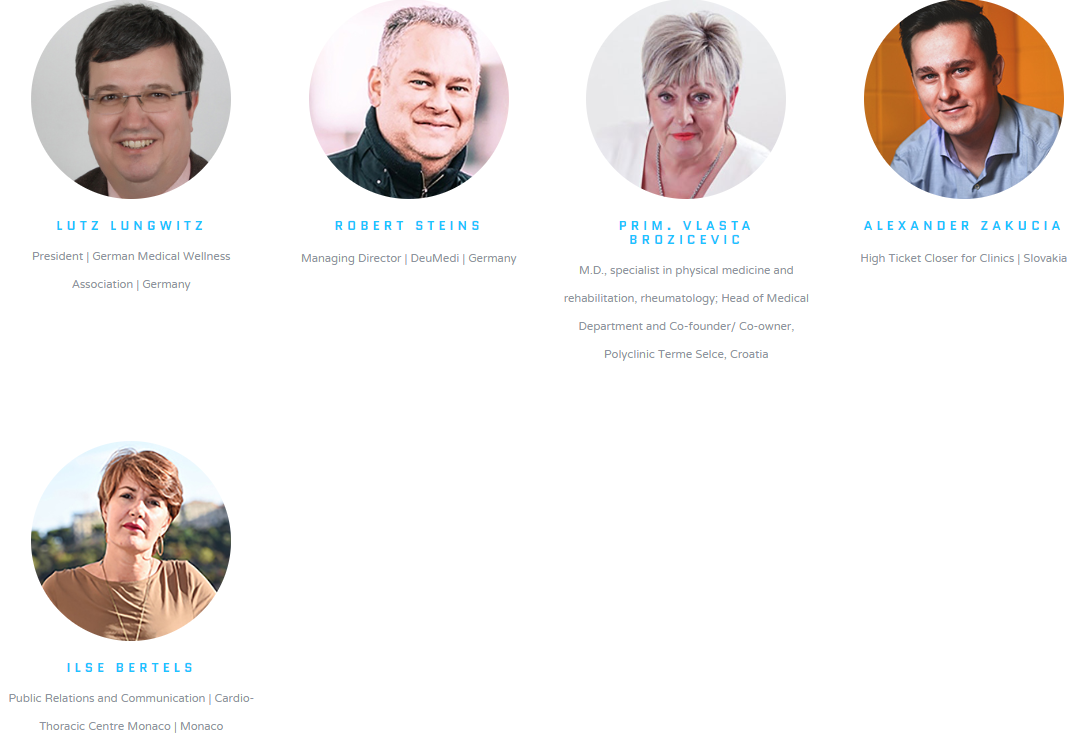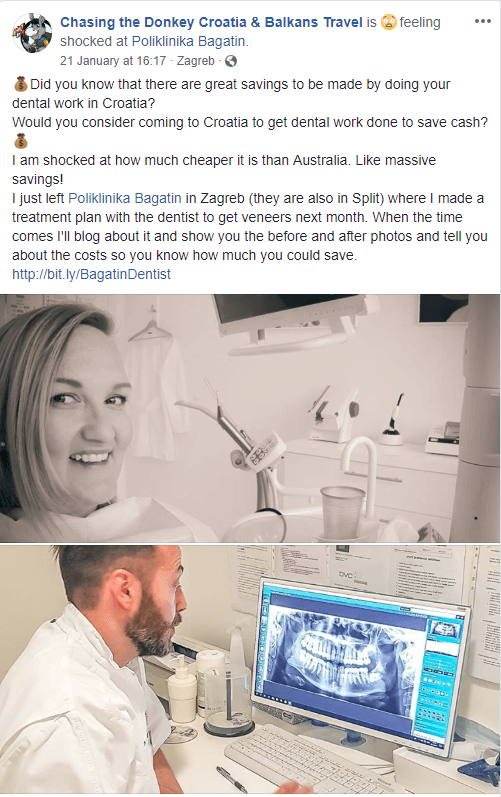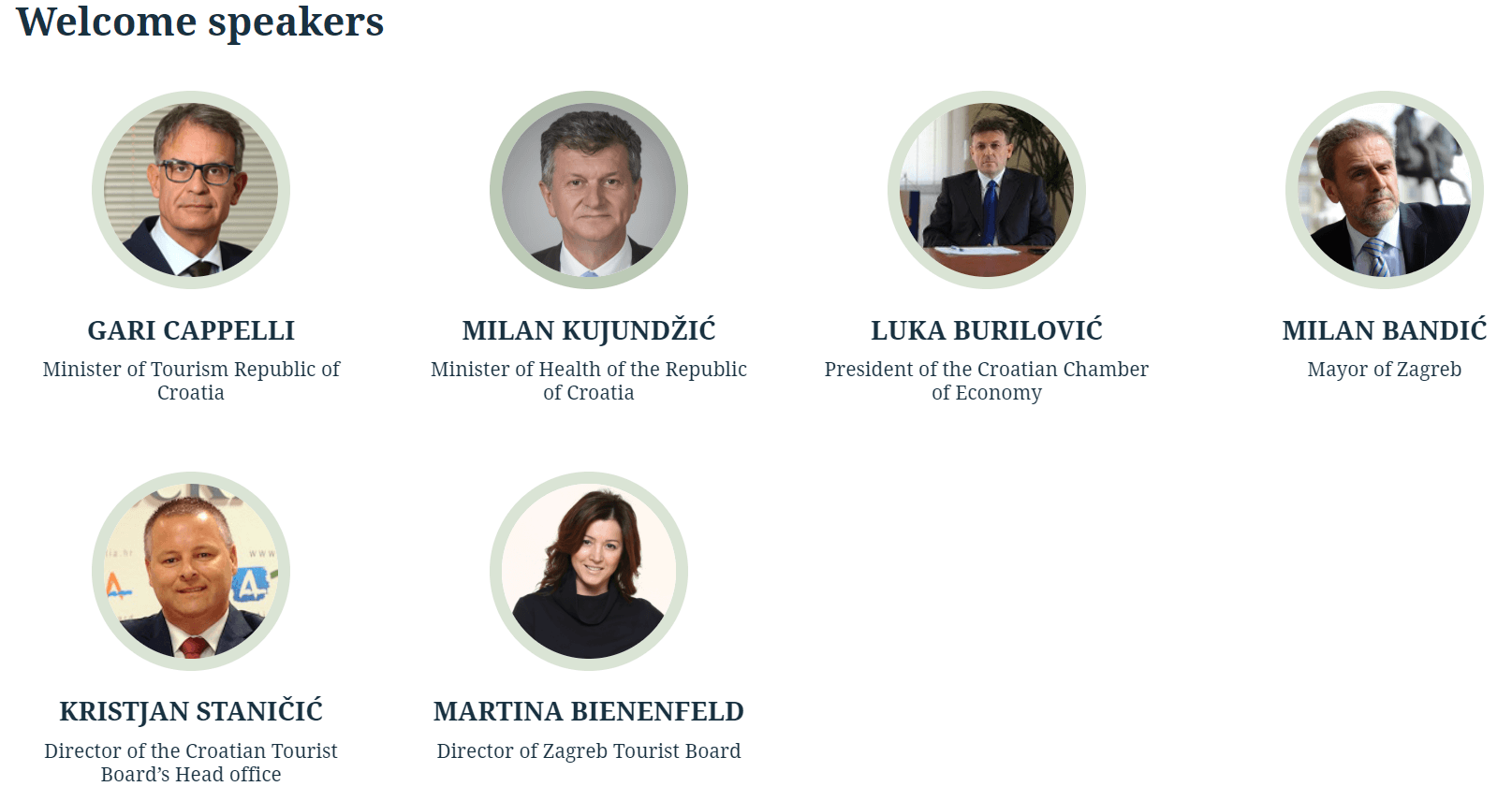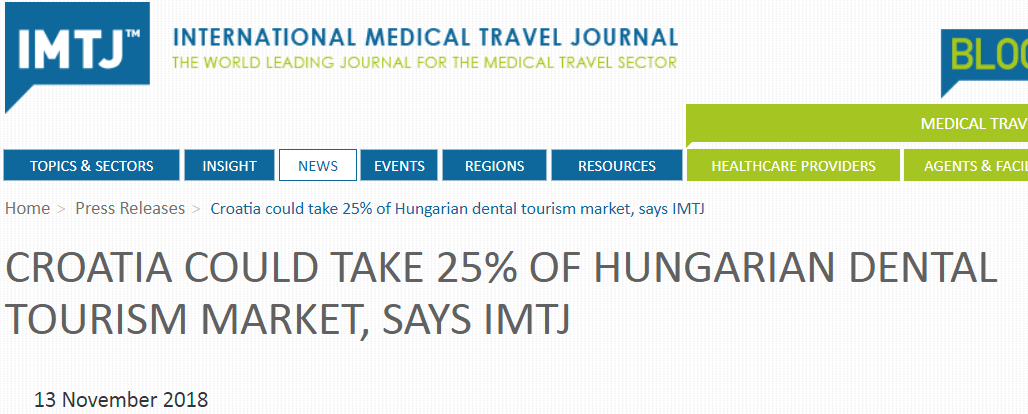Meet Croatia's Health Tourism Providers: 2. St Catherine Specialty Hospital
March 1, 2019 - As Croatia looks to develop its medical tourism industry, TCN continues its look at the key health tourism providers. This week, St Catherine Specialty Hospital.
Several months ago, I was invited to a press conference at St Catherine Specialty Hospital. TCN gets invited to a lot of press conferences, but we rarely attend due to time and limited resources. But there was something a little different about this invitation, and as I was planning to be in Zagreb that day, I decided to attend.
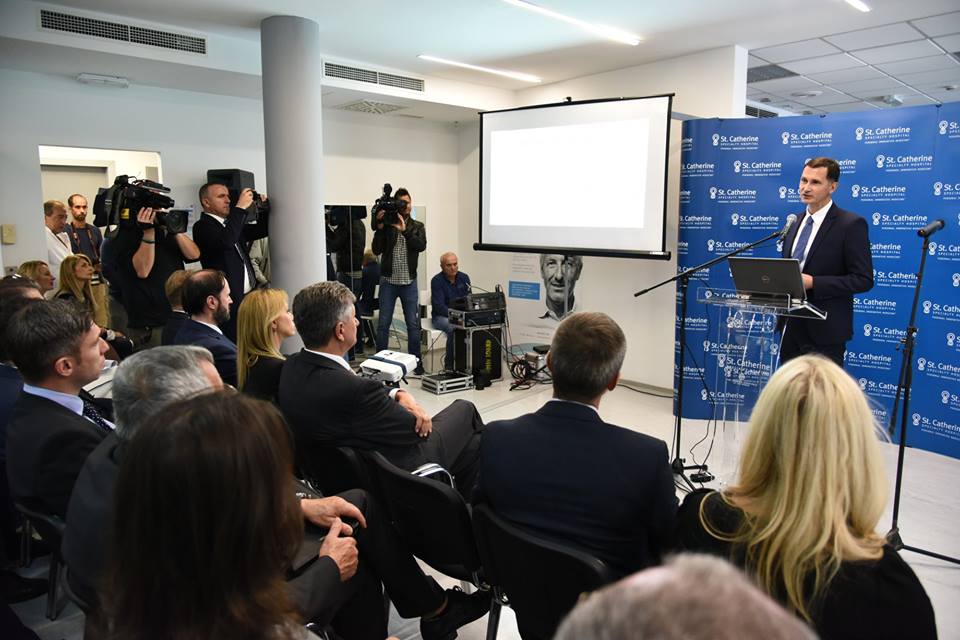
(Prof dr.sc. Dragan Primorac at the OneOme press conference in Zagreb)
I was blown away.
For two reasons.
The first reason I was blown away was what was being announced.
Healthcare is not a topic I know a great deal about, but even I could see that the unveiling of the new OneOme RightMed pharmacogenetic test which had been developed in cooperation with Mayo Clinic in the States was a potential game-changer in global and personalised healthcare.
I learned that the fourth-largest killer in the United States each year was due to adverse drug reaction (ADR), more than 100,000 people a year. The prescribing of drugs which have little or no effect also costs over $100 billion a year. A drug which works for one patient may not work for another, and slower metabolisms also differentiate the speed with which medicines work on patients. The policy of blanket prescribing for all is both costly, ineffective and deadly. If only there was a way to personalise the diagnosis of a patient's needs.
Enter OneOme. The RightMed pharmacogenetic test does exactly that. After a simple swab OneOme processes the sample and generates the RightMed test report. Finally, you visit a clinic representative who helps you understand the test results. Depending on your genes, your body may break down a drug too slowly or too quickly. If you metabolise a drug too slowly, you may be exposed to too much of it, which may result in an adverse drug reaction (ADR). If you metabolise a drug too quickly, you may not get enough to have any effect at all. A OneOme RightMed test helps to identify this for your doctors.
A Mayo Clinic trial of 3,600 patients whose RightMed information was available to doctors led to a 30% reduction in hospitalisation of heart patients.
The potential saving to national healthcare systems is mind-boggling. You can learn more about OneOme in this interview with Prof. dr. sc. Dragan Primorac of St Catherine Specialty Hospital.
The second reason I was blown away was that the first partner chosen to provide the OneOme RightMed test in Europe was St Catherine Specialty Hospital in Croatia.
Yes, tiny Croatia, at the forefront of cutting edge medical innovation. I was stunned.
Stunned is an emotion I have encountered a lot since I discovered the emerging medical tourism story 18 months ago. I visited three of the country's top private healthcare providers (Bagatin Clinic and Svjetlost were the others) as part of my research, and this led to my first visit to the St Catherine Zagreb facility. What I found at all three facilities was a level of customer care that far exceeded the perception of healthcare in Croatia. You can read my first article of discovery - Health Tourism is Coming Home - Why Zagreb is the Next Big Medical Tourism destination.
A member of the Leading Hospitals of the World, the OneOme press release introduced St Catherine as follows:
St. Catherine is a university teaching hospital and the official hospital of the Croatian Olympic Committee and of the Croatian Football Federation. The Hospital is the first European recipient of U.S. Global Healthcare Accreditation and known for introducing the integrative concept of personalized medicine in clinical practice.
I was soon to learn that St Catherine Specialty Hospital is so much more than that, as the official St Catherine website explains:
St. Catherine Hospital is a proud member of the prestigious group "The Leading Hospitals of The World", while In June, 2015., The International Certification Association (ICERTIAS) announced that the St. Catherine Hospital won the top-Quality medal (QUDAL - QUality meDAL) along with award of St. Catherine Hospital being the best private hospital in the Republic of Croatia, which is all according to the customer’s/patient’s opinion and judgement. It is also worth mentioning how during the studies, the ICERTIAS was using CAWI – DEEPMA (Computer Assisted Web Interviewing – Deep Mind Awareness) methods in order to analyze and examine all the received data.
St. Catherine Specialty Hospital’s membership in the International ICERTIAS Customers’ Friend programme – “Because we care about our customers”, attests to the special care and attention that Specialty Hospital give to patients and their problems, as well their commitment towards developing long-term customer satisfaction from the very beginning – from the first phone call up to the final phase of treatment.
Nevertheless, the "Super-brands organization" based in Great Britain (since 1995), has proclaimed St. Catherine in July 2016, as one of the strongest and the most successful brands in that year, thus, along with that, St. Catherine won “Croatia Superbrands 2016 Award” regarding its quality, reliability and distinction.
On November 6th, 2015., Ministry of Science, Education and Sports of the Republic of Croatia announced that the St. Catherine Hospital become “Scientific Center of Excellence for the Personalized Medicine in the Republic of Croatia” as a part of Consortium that includes the top healthcare and scientific institutions in the country and such field.
In April 2017, St. Catherine was awarded the “Best Hospital Award” for the strong position at the national market and in international sector ratings, successful implementation of modern management technologies, staff excellence and the efficient marketing strategy. Mrs Jadranka Primorac, M.Sc., Board Member of St. Catherine Specialty Hospital was honoured as a “Manager of the Year” by the Europe Business Assembly, Oxford, UK.
In April 2017 St. Catherine hospital has won a major international medical tourism award for their efforts in attracting international patients to Croatia. St. Catherine Specialty Hospital was named “International specialist patient centre of the year" by medical travel publication the International Medical Travel Journal Medical Travel Awards 2017 at their annual awards ceremony, the IMTJ Medical Travel Awards 2017.
In May 2017, St. Catherine Specialty Hospital was selected among the top 10 European companies in the category of 'The Award for Customer Focus' at the European Bussines Awards, for its business success and excellence, innovation and ethics in business. St. Catherine Specialty Hospital has been selected among 34,000 businesses that have been involved in this prestigious competition. Also, St. Catherine Specialty Hospital has won the status of the "National Champion for the Republic of Croatia in The European Business Awards".
The main hospital is a short drive from Zagreb in the town of Zabok. I took my daughter there for treatment and was amazed at the size of it in gorgeous and spacious grounds. St Catherine treats 35,000 patients a year, and after years in the Croatian public healthcare system, it was a totally different experience altogether, both in the diagnosis and the customer care.
Croatia has its poster child heroes in various sectors of society who can compete on the world stage in their fields, such as Mate Rimac and Luka Modric. Add St Catherine Specialty Hospital to that list in the field of medical tourism.
To learn more about St Catherine Specialty Hospital, visit the official website.
To learn more about the Croatian medical tourism story, follow the dedicated TCN page.
5th Annual Medical Tourism Conference in Zagreb: Meet the Speakers – Ognjen Bagatin
February 28, 2019 - Another important international health tourism conference is coming to Croatia. As previously reported on TCN, the 5th Annual Medical Tourism Conference will take place in Zagreb on March 13-14. TCN catches up with one of the keynote speakers, Ognjen Bagatin, CEO of Bagatin Clinic in Zagreb (and also now in Split).
The 5th Annual Medical Tourism Conference will take place from March 13. How important is the choice of Zagreb for medical tourism in Croatia?
We are delighted that the conference will be held this year in Zagreb after the successful 2018 event in Berlin.
Croatia is at the beginning of a potentially incredible medical tourism story, with many experts of the view that it has the potential to be in the top 10 countries in the world for health tourism within 10 years. One of the biggest challenges we face is visibility in the global market. Conferences such as MTCE are extremely important for Croatia, and we look forward to giving our international guests both an amazing conference and an incredible and warm Croatian hospitality experience.
There seems to be an increasing number of health tourism conferences in Croatia. What makes this one stand out?
Conference organisers EuroEvents always put on excellent conferences, and they have a great international reputation. Just looking at the quality of the superb list of speakers is really exciting, and my Croatian roots are looking forward to welcoming Joe Sweet from Cleveland Clinic, for example – Cleveland Clinic's CEO Tomislav Mihaljevic is Croatian.
The focus of this year's conference will focus on how to win international patients in the era of digitalisation and globalisation. MTCE is a very interactive platform, which allows practitioners and leading experts to share, discuss and build strategies for future growth. In addition to the conference, the B2B workshop on day 3 should be particularly productive.
You yourself are a speaker at the conference.
Yes, that's correct, and it is an honour to share such a platform with such an array of accomplished and influential speakers. My subject will be “Facing the problem of the lack of a suitably skilled workforce.”
As you know, Croatia is sadly facing another wave of economic emigration due to lack of opportunity here. Finding the appropriately skilled staff can be a challenge, but the potential of a successful medical tourism industry here has the potential to partially reverse that dynamic, and offer challenging and fulfilling futures for thousands.
What do you hope to gain from this conference yourself?
Bagatin Clinic is striving for excellence in all areas of the medical tourism experience. We are a young buy dynamic clinic which is expanding rapidly, but we also have much to learn. The chance to interact with such a quality field of speakers, and to network with other international stakeholders can only be a good thing. The fact that the conference is being held in Croatia is one more page in our medical tourism story.
Some people may be surprised to hear that Croatia is being touted as one of the rising stars of medical tourism. Tell us why and a little more about the potential.
There are so many reasons why Croatia is an ideal destination for medical tourism. Our very best private clinics and hospitals compete on the world stage. For example, the only place in Europe where you can take the new Mayo Clinic-sponsored OneOme pharmacogenetic test is in Zagreb.
Croatia has a health tourism tradition dating back 150 years, and we offer outstanding and affordable care in dentistry, dermatology, cosmetic surgery, eye surgery and stem cell therapy, to name a few. Many of our surgeons are internationally acclaimed, and equipment is state of the art.
Add to this the fact that Croatia is a safe and stable country in the EU within easy reach of all European capitals, and where English is widely spoken. A country with a strong tourism and wellness tradition, where the culture, heritage, climate and gastronomy make it an ideal place to recuperate after treatment. Our potential is enormous.
In order to move forward, we need to be more united and focused on the goal of developing the country brand of medical tourism. Looking to Malaysia, there is a shining example of how to achieve this. The recent Health Spot Croatia conference was an important step in this direction, bringing all the important stakeholders together to build a strategy. The EuroEvents MTCE conference compliments that nicely, and I am really looking forward to a successful event.
Ognjen Bagatin is CEO of Bagatin Clinic, one of Croatia's leading clinics and named last year as the best dermatology clinic in Europe. In addition to the main base in Zagreb, Bagatin Clinic opened its doors in Split earlier this month.
TCN has a limited number of discounted tickets for the 5th Annual Medical Tourism Conference, priced at 600 euro including VAT if purchased by close of business tomorrow. Contact us on This email address is being protected from spambots. You need JavaScript enabled to view it.
For more information about the conference, visit the official website.
For more about health tourism in Croatia, visit the dedicated TCN page.
Strong Speaker Lineup for 5th Annual Medical Tourism Conference in Zagreb
February 25, 2019 - The Croatian medical tourism story continues to evolve with another prestigious event, as Zagreb hosts the Euro Events 5th Annual Medical Tourism Conference in Zagreb.
Another day, another chapter for Croatia's health tourism industry.
What industry insiders have known for a while is slowly reaching an international audience; there is huge potential for Croatia to become a global player on the international health tourism stage, with several experts agreeing that Croatia could be in the world's top ten medical tourism countries within ten years.
There is an increasing interest in Zagreb and Croatia from health tourism professionals, and next month sees another important milestone for Croatia's medical tourism story, as Euro Events will be staging the 5th Annual Medical Tourism Conference and Workshop in Zagreb.
Held last year in Berlin, this year's event will take place at the Westin Hotel in Zagreb. The two-day conference will be held on March 13-14, with a B2B workshop on the 15th.
Conference producer Stefan Ristovski introduces the event in the official brochure:
"EuroEvents is pleased to invite you to the 5TH Annual MTCE conference, the leading industry event of 2019!
"This year our focus is on winning over international patients in the era of digitisation and globalisation!
"MTCE will provide an interactive platform, during which practitioners and leading experts in the field will share, discuss, and construct strategies for future growth and innovation for the purpose of creating and sustaining successful facilities.
"Furthermore, MTCE 2019 will focus on revealing the key strategies for success based on providing the ultimate client tailored experience, as well as defining the trends that will shape the future of medical tourism.
Inspire and be inspired, discover and be discovered, join us today and experience the full potential of MTCE 2019! "
As one would expect for such a prestigious conference, the quality and variety of speakers is impressive, very international and covering a wide range of aspects of medical tourism. Topics covered on the first day of the event include
- The implementation of the EU directive on cross-border healthcare and the position of European private hospitals.
- Buying and selling healthcare across borders: opportunities and obstacles.
- Stellar healthcare service that attracts new business by innovative medical treatments.
- Facing the problem of a lack of a suitably skilled workforce.
- Cyberknife - 12 years experience of Iatropolis radiological surgery.
- Hello # How is your @ and how to communicate.
- Clinic reputation = clinic revenue
- Patients' experience - a key to efficient and effective business.
- The patient will see you now - telemedicine and the transformation of medical travel.
- Ensuring continuum of care worldwide.
- Future of harmless cancer treatment.
The second day has an equally absorbing range of presentations and discussions:
- Creating a consistent approach to a high-quality patient experience.
- Creating the next dimension customer experience and anticipation of patients' expectations: drawing conclusions from fertility patients.
- New trend - bringing the doctor to the patient and creating affordable practice.
- Overview of the medical tourism market of Russia and CIS - patients' preference for treatment abroad.
- Preventative health and reconnection with nature.
- Development of health tourism - quality management strategy for foreign patients/guests.
- Why do international patients choose one-stop clinics? Understanding the strategy of patient care now and in the future.
- Building a diverse cross-border network for the international patient group.
- Making medical tourism sustainable by getting more patients from your enquiries.
Among the very international speakers, Croatia is also represented by Bagatin Clinic CEO Ognjen Bagatin, who has been spearheading Croatia's drive to put itself on the global health tourism map. A Zagreb clinic already with an excellent international reputation, Bagatin last week officially opened in Split, a huge step for health tourism in Croatia, and one which many tourists flying into Split this summer will be taking advantage of.
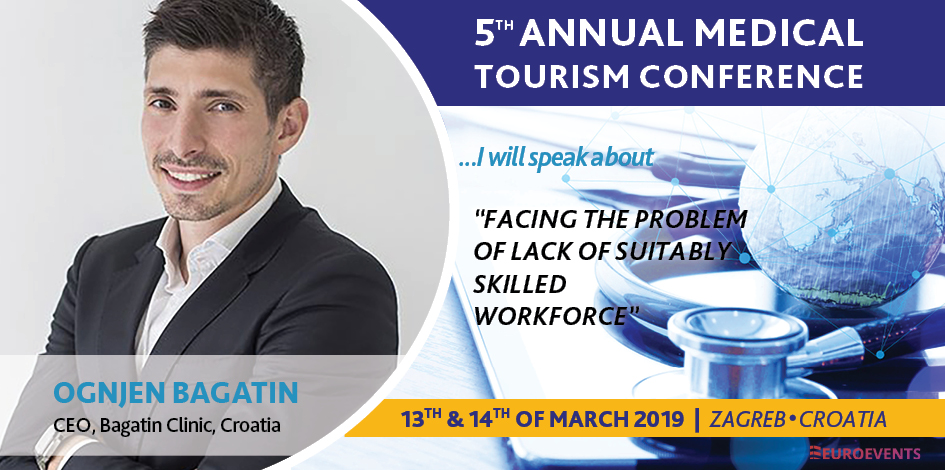
TCN has managed to secure a few tickets for the two-day conference, at a price of 600 euro including VAT if you book no later than this Friday. If you are interested in more information, contact us at This email address is being protected from spambots. You need JavaScript enabled to view it..
With the main conference over, it is time to get to work. The third day of the event is given over to B2B networking, as Euro Events explain:
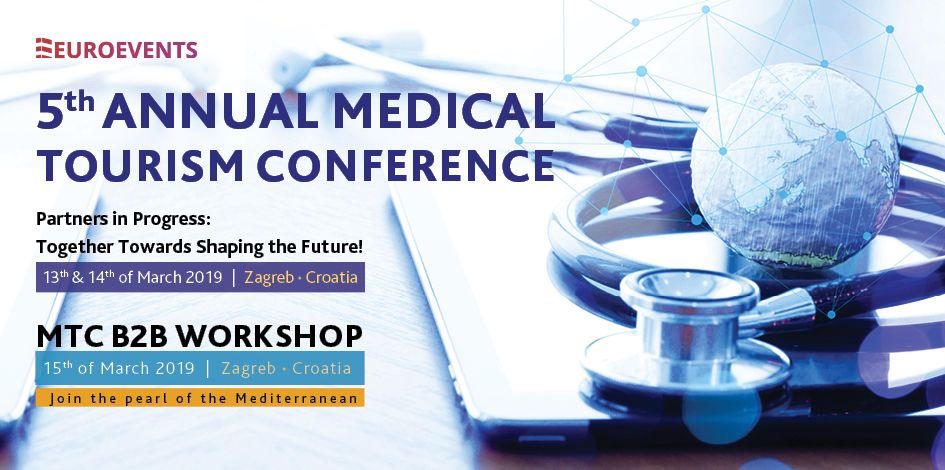
B2B Meetings are an essential way of building long term business relations with other professionals from your field. Medical Tourism Conference.
B2B Workshop is gathering worldwide top important players of the medical tourism conference, including: health insurance companies, travel agents, tour operators and facilitators, among others.
With pre-scheduled meetings, you will get the opportunity to interact with more 30+ companies that are looking to expand their business network.
We are welcoming you in Zagreb, Croatia – one of the most popular destinations for Medical Tourism, with more than 18 million tourists per year. Come and see the benefit of what this country can offer you.
For more information on the B2B workshop, click here.
For the latest news from Croatia's medical tourism story, visit the dedicated TCN page.
Zagreb, the Health Tourism Destination: Meet the Clinics - 1. Bagatin
February 13, 2019 - As Zagreb makes a concerted effort to promote its considerable medical tourism potential, a look at the leading clinics, starting with one of its superstars, Bagatin.
One of the joys of being a foreigner living full-time in Croatia is that there is always something new to learn. When I moved into my house in Jelsa back in 2002, a very jovial neighbour came round to say hi and give me a bottle of wine. It was seven years later that I realised that he was one of Croatia's most famous winemakers, Andro Tomic. And through Andro, and especially his excellent wines, I discovered first the Hvar and then the Croatian wine story, culminating in our dedicated Total Croatia Wine portal.
And so too, almost 15 years after living in the country, I was introduced to another world of Croatian excellence about which I knew very little.
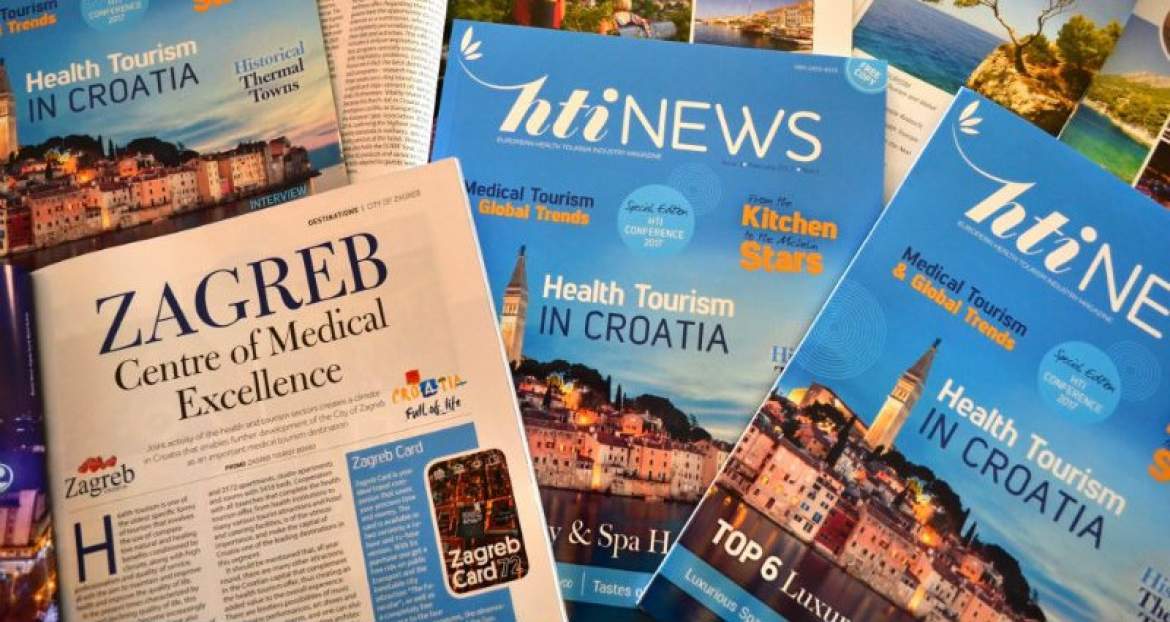
When we announced that we were starting our Total Zagreb portal, I received a message from a chap named Ognjen Bagatin, who invited me for coffee - he had been following the Total project for years apparently. We agreed to meet in his clinic on the 10th floor of Hotel Hilton Double Tree. And so began a journey of discovery which is still ongoing a couple of years later...
Living in Croatia one gets used to surly service and disinterested serving staff, and so when you encounter top-quality service from well-trained staff, you notice it immediately. Aminess Hotels in Novigrad is a prime example, just such a happy place to stay. And so too with Bagatin Clinic. Warm, polished, professional. The equipment was all cutting edge and business was brisk, but it was not his own clinic that young Bagatin wanted to discuss - he wanted to know what I knew about medical tourism in Croatia.
Embarrassingly little, it turned out, and what he showed me truly amazed me. Croatia had a Leading Hospital of the World, internationally recognised and attracting many famous sports starts for treatment (St. Catherine Specialty Hospital). It had a leading regional eye clinic with internationally acclaimed surgeons who had performed tens of thousands of successful operations at a fraction of Western prices (Svjetlost). And it had Bagatin, which I was soon to learn was much more than a standard clinic in Zagreb. I wrote my first article on the health tourism potential of Croatia - Health Tourism is Coming Home: Why Zagreb is the Next Big Medical Tourism Destination.
The topic got my attention, and the more I investigated, the more I was amazed. Here are 25 things to know about health tourism in Croatia - pretty impressive, right?
(Others are beginning to notice)
And wherever I looked, at every turn, there was that man who introduced me to the world and possibilities of medical tourism - Ognjen Bagatin. Trade shows in Los Angeles, conferences in Moscow, he was there flying the flag for Croatia and its medical tourism industry. And while some businesses compensate for a poor product (who said Zuja?) with fantastic marketing, it seemed the Bagatin product more than matched its impressive marketing. The clinic specialised in four main areas: dermatology, plastic surgery, dentistry and cosmetic treatments. Here are just a few awards and recognitions of quality:
The best dermatology clinic in all Europe.
2018 Dental Implants Award for Full Mouth Reconstruction from American platform, Dental Implants Friends. And if you want to see a real-life example of how Bagatin's dental expertise literally changed an American's life, while saving tens of thousands of dollars, there is no finer example than Carl's incredible story. (see Carl below, but I really encourage you to read his story)
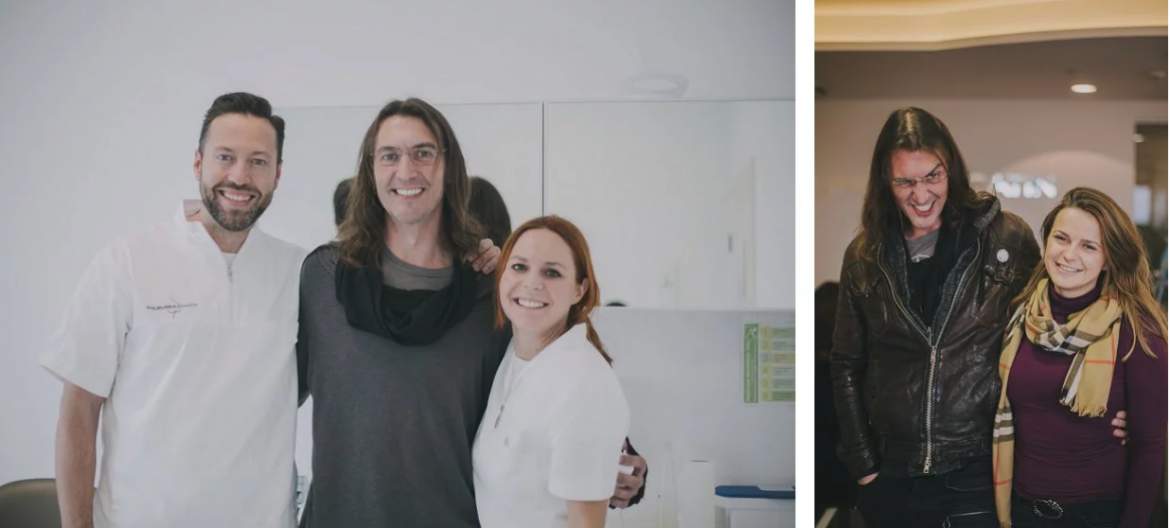
International Cosmetic Surgery of the Year 2017 at the International Medical Travel Journal awards.
Each year, the Bagatin surgeons are recognised among Croatia's best, with no less than 11 making the Najdoktor list in 2018.
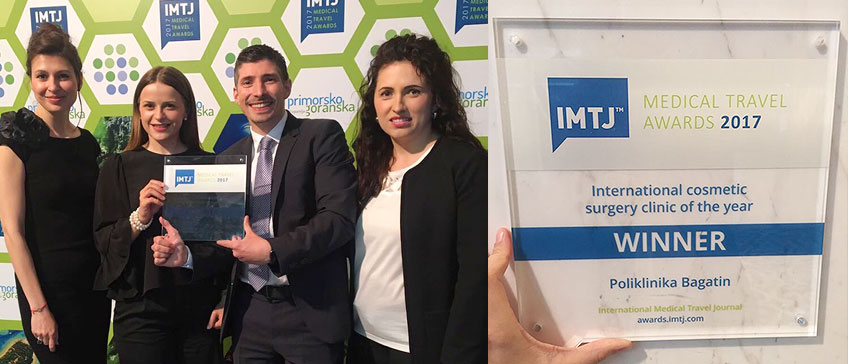
In order to attract international clients, the latest equipment is essential to be competitive and to build trust for the patient. Bagatin prides itself on offering the best service possible, from initial welcome to the latest equipment.
In addition to its considerable international promotion of health tourism in Croatia, Bagatin is assisting many businesses and clinics with their professional development and communications skills via the Bagatin Academy. More than 50 quality professional trainers focus on soft skills developments in the areas of stress management, team management, communication, presentation and public speaking, top-level service, conflict management, and negotiating. Education is delivered through lectures, workshops and other training methods.
The Bagatin Academy is also a powerful networking tool, attracting as it does many of the top people from the Croatian business world, and it is a great place to organise B2B lunches and other business gatherings. The academy project has some strong official support, including the President of the Republic of Croatia, the Croatian Chamber of Physicians, the Croatian Chamber of Commerce, the American Chamber of Commerce in Croatia, the Croatian Pharmacy Chamber and the Croatian Chamber of Nurses. The project is supported by Resisto Educational Houses, Janus PIM and Knowledge Map, as well as the portal Moj Posao, magazine Poduzetnik, Dental Tribune and MTV UP! energy drink.
To learn more about the Bagatin Academy and its upcoming events, visit the official academy website.
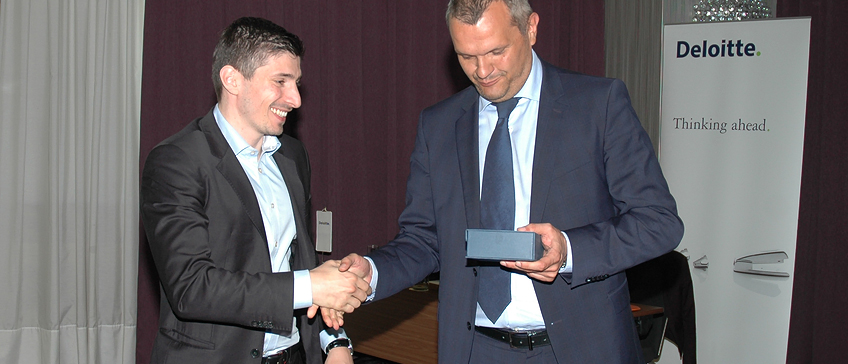
As one would expect for such a successful business, Bagatin Clinic has also been recognised as a business as well as its healthcare. In 2015, Deloitte named it the fastest-growing small and medium-sized business in Croatia.
And it continues to grow...
In January, 2019, Bagatin opened its doors in Dalmatia with its first clinic in Split. You can learn more about the Split clinic here, but I defy you to find a clinic with a better view to accompany the high standard of service. The Split opening is excellent news for tourists who are contemplating combining some medical procedures with their holiday, with the savings really adding up. The arrival of Bagatin in Split is just one more piece in the jigsaw of establishing the Croatian medical tourism story.
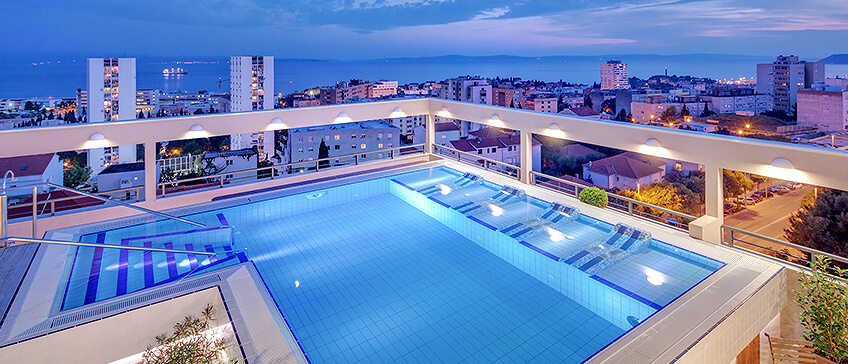
To learn more about Bagatin, visit the official website.
To learn more about medical tourism in Croatia, follow our dedicated page.
Zagreb Health Tourism Promotion Initiative Launched
“Zagreb – The Centre of Medical Excellence” – This is the new motto of the Zagreb Tourist Board, which has decided to more seriously dedicate its efforts towards the development of Zagreb health tourism capabilities, reports Večernji List on February 7, 2019.
Last year, it commissioned the Medical Tourism Association from the United States to draft a feasibility study for the development of health tourism in Zagreb and its surroundings. In recent days, the study was officially presented at the Health Spot Croatia conference, which was organised jointly with the Croatian National Tourist Board. They also released a new brochure and designed a special website promoting health tourism, which will this year also be presented at specialised fairs, conferences and events around the world, beginning next week in Tel Aviv, Israel.
"If we want to use all of its possibilities, health tourism needs to be more seriously strategically developed," says Martina Bienenfeld, the director of the Zagreb City Tourist Board, adding that Zagreb already has medical clinics that are equal in their quality level with many of the international ones. Most of them are privately-owned, and this fact is precisely one of the reasons where Nikica Gabrić, the owner of the Svjetlost Polyclinic, where many foreign patients come for their laser vision correction surgeries, sees a sort of an obstacle.
“Private clinics are not equal in their status with the state-owned institutions because they cannot withdraw money from the European Union funds, and therefore they need administrative and government support,” Gabrić said.
The area surrounding Zagreb is equally attractive for the development of medical tourism, says Bienenfeld. Just a half hour drive from the capital is Naftalan, the only European spa resort known for its therapeutic oil springs and thermo-mineral water.
The majority of health tourists to Zagreb come from Slovenia, Italy and Germany, and most often they arrive to see dentists, ophthalmologists and plastic surgeons, since the prices in Croatia are substantially lower than in their countries, while the quality of medical services is equal and sometimes even better.
More news on the development of medical and health tourism in Croatia can be found in the Travel section.
Translated from Večernji List (reported by Petra Balija).
Health Spot Croatia: Major Medical Tourism Conference in Zagreb Tomorrow
February 4, 2019 - A major health conference takes place in Zagreb tomorrow, as Health Spot Croatia will feature many of the key stakeholder heavyweights. Is Croatia finally getting united?
Could it finally be?
One of the greatest potentials for the Croatian economy in general, and Croatian tourism in particular, looks set to take one major step forward tomorrow, with the first Health Spot Croatia conference in Zagreb, a conference bringing together 200 industry professionals and stakeholders together to discuss ways to move the Croatian medical tourism story forward.
Medical tourism is a topic which TCN has written about a lot in recent months, as international expert after international expert has concluded the same thing - that Croatia has the potential to be one of the top 10 countries for medical tourism in the world. The major obstacle preventing that from happening was the inability of Croatian officials to unite to make that happen. After learning about the shining example of Malaysia at the Crikvenica International Health Conference a few months ago, and having interviewed several of the key international experts, I wrote Can Croatian Officials Unite to Exploit Huge Medical Tourism Opportunity?
There will be no better opportunity than tomorrow, with welcoming speeches coming from the Ministers of Health and Tourism, Mayor of Zagreb, Director of the Croatian National Tourist Board, Director of the Zagreb Tourist Board and the President of the Chamber of Commerce. Other keynote speakers include Keith Pollard, Editor-in-Chief of the International Medical Travel Journal, Tomislav Mihaljevic, President and CEO of Cleveland Clinic, and Dragan Primorac of St. Catherine's Hospital.
During the conference, the Zagreb Tourist Board will be presenting its much-anticipated feasibility study for health tourism in the city. According to the official website:
Over 200 participants and leading experts in the fields of medicine, healthcare, wellness and tourism from Croatia and other countries expected at the conference will discuss the present and future developments in health tourism, introduce strategies for creating new products and new experiences, and present examples of best practices in the field. The conference provides a marvellous opportunity for interaction between providers of tourist and health services. Over 200 participants and leading experts in the fields of medicine, healthcare, wellness and tourism from Croatia and other countries expected at the conference will discuss the present and future developments in health tourism, introduce strategies for creating new products and new experiences, and present examples of best practices in the field. The conference provides a marvellous opportunity for interaction between providers of tourist and health services.
We believe that the HEALTH SPOT CROATIA conference is an important step in making Croatia and Zagreb very attractive as a health tourism destination and would like to invite you to join us at the conference and become a part of this exciting journey.
For details on the official programme tomorrow at Hotel Esplanade, visit the official Health Spot Croatia website.
To follow more on medical tourism in Croatia, follow the dedicated TCN health tourism page.
St. Catherine Hospital to Launch Genetic Screening of Footballers
The St. Catherine Hospital, the official hospital of the Croatian national football team, and the Croatian Football Federation have begun, for the first time in Europe, a project of systematic screening of risk groups of football players to determine frequency of the most common genetic mutations that can lead to sudden cardiac death of athletes, announced the Croatian Football Federation on December 28, 2018.
The sudden cardiac death is a tragic event which occasionally happens at sports venue which opens up a series of questions among both the general public and professionals, such as "How can this happen to seemingly healthy and successful athletes" and "How to prevent such sudden events?"
The fact is that extremely intense physical activity can temporarily increase the risk of sudden cardiac death in predisposed athletes. Medical literature suggests that due to increased physical activity, athletes have a 2.8 times higher risk of sudden cardiac death compared to the general population which does not take part in sports activities. Particularly significant is the fact that genetically-based illnesses can cause such a dramatic event. Because of this, the medical professionals, in addition to introducing thorough clinical exams of athletes, have recently started recommending the introduction of targeted genetic testing, primarily because they can point to an existing genetic predisposition on time.
With the Cardio Screen "multi-gene panel testing" during the pilot project, 77 genes and related mutations that can lead to sudden cardiac death of athletes will be analysed simultaneously. These conditions include, among others, various disorders of the heart's electrical activity, including inherited disorders of the ionic heart canals (e.g., prolonged QT interval syndrome) or, on the other hand, structural changes in the heart, such as cardiomyopathy (most often hypertrophic cardiomyopathy), as well as many other conditions. When it comes to cardiomyopathies, sudden cardiac death unfortunately often occurs before any previous symptoms appear, so any diagnostic data that can reduce the frequency of such incidents is highly important.
The Croatian Society for Sports Medicine of the Croatian Medical Association, in connection with the systematic exams of athletes and in line with the views of the American Heart Association, the European Society of Cardiology and the International Olympic Committee, has issued guidelines for the scope of athletes’ examinations and have emphasised that "it is of particular concern that most athletes with undetected cardiac issues have no symptoms, and the only way to prevent sudden cardiac death is primary prevention involving an electrocardiogram. If there is any suspicion about heart disease, further examinations should be performed, including heart ultrasound, ergometry, 24h Holter monitoring, heart MRI etc.” It goes on to say that “today, genetic testing of deceased athletes is becoming more common so that we can get more information about these disorders in order to prevent sudden deaths in the future better.”
The goal of the St. Catherine Hospital and the Croatian Football Federation’s project is to use the genetic screening of athletes belonging to risk groups (athletes with a concerning personal or family medical history, athletes with specific findings after a clinical examination, athletes with previous episodes of weakness or excessive fatigue, athletes with unexplained loss of consciousness and chest pains, etc.) to find athletes with specific genotypes that contain typical mutations responsible for the emergence of these unexpected and tragic events. On the other hand, according to the guidelines of the Croatian Society of Human Genetics of the Croatian Medical Association, all persons who have been determined to be persons with higher risk will be provided with information as part of their genetic counselling process, in identifying the risk and after further examinations. This will provide the basis for optimal treatment and, if necessary, exclusion from the sports of under risk athletes all with the aim of reducing the incidence of sudden cardiac deaths.
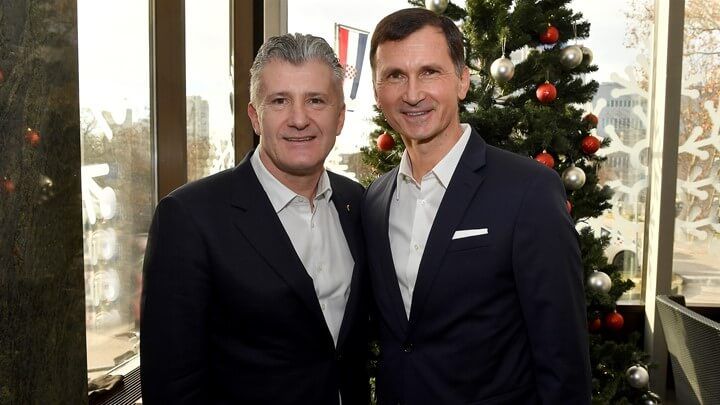
“It is my pleasure to cooperate with our official hospital, the St. Catherine Hospital, the European centre of excellence, and to carry out for the first time in Europe a systematic genetic screening of football players. With this, we demonstrate that we can be leaders in a number of processes, like introducing new diagnostic tests, all with the aim of providing our athletes with the best possible health care,” said Davor Šuker, the president of the Croatian Football Federation.
“The sudden cardiac death is the leading cause of death in athletes, and every new diagnostic step is significant in preventing such unexpected and tragic events that leave a deep mark in every society. A large number of cardiovascular diseases that can lead to sudden cardiac death, such as hypertrophic cardiomyopathy or various heart electrical activity disorders, have a genetic basis. This naturally suggests the need for timely genetic screenings, especially with risky groups of athletes, which will lead, together with standard clinical treatments according to the guidelines of the European Society of Cardiology, to optimisation of treatment and providing recommendations related to further sports activities,” said Dragan Primorac, the president of the St. Catherine Hospital’s management council.
More news about the St. Catherine Hospital can be found in our Lifestyle section.
Success Breeds Success as Dental Tourism Joins Advent in Zagreb
November 24, 2018 - The popularity and success of Advent in Zagreb is providing new opportunities in other sectors of Croatian tourism, with Bagatin Clinic the first to link it to Croatia's huge dental tourism potential.
Writing about Croatian tourism is a little like watching Real Madrid play at times. A group of world-class individuals who often cannot come together and transfer all that individual talent into something cohesive for the team. And then, on occasion, when it does happen, it is like watching poetry in motion.
Croatia has some exceptional tourism superstars, which if properly coached and encouraged, could catapult the country towards its goal of becoming a year-round destination. Among these areas I would include gastro-tourism (it is six years since the late Anthony Bourdain was blown away by the 'world class food', 'world class wine' and 'world class cheese'), and medical tourism.
Croatia also has some great and innovative tourism success stories, none more so than Advent in Zagreb, an event which barely existed just a few years ago, but one which has been voted the best Christmas market in Europe for the last three years running. Zagreb was hardly on the tourism map at all ten years ago, especially in December, and yet this year's Advent will once again welcome hundreds of thousands of tourists to the Croatian capital.
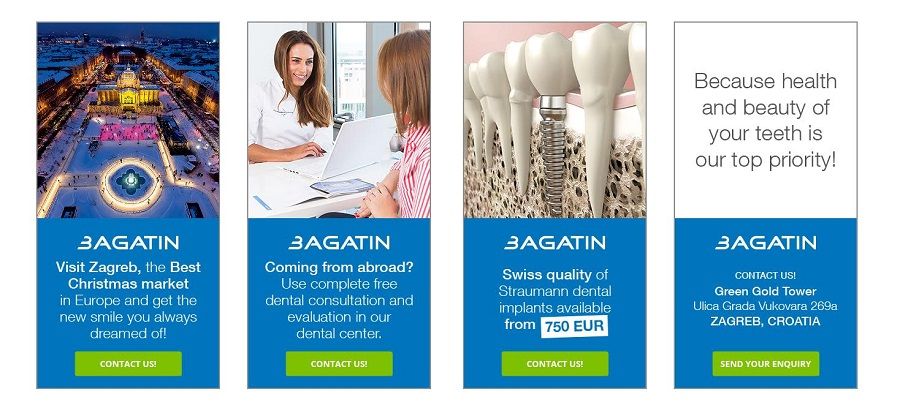
Advent in Zagreb, another Real Madrid superstar of the Croatian tourism scene. Apart from the tourism experience that Advent in Zagreb brings for the city itself, it is also an opportunity for those other tourism sectors to link up with the welcome surge of winter tourism traffic. Nowhere is this truer than the Croatian medical tourism industry, which operates 12 months of the year, and whose excellence in the fields of dentistry, cosmetic surgery, eye surgery, dermatology and stem cell therapy is well-documented (learn more with 25 things to know about Croatian health tourism). Croatia is currently the only place in Europe where one can take the innovative new Mayo Clinic OneMed RightMed pharmacogenetic test.
Croatia has some 18 million tourists annually. If just 1% of those pre-planned to get their teeth, eyes or some cosmetic surgery, that would be 180,000 patients a year for the Croatian medical tourism industry. And industry experts agree on the potential of Croatian medical tourism. In a recent interview with TCN, Keith Pollard, Editor in Chief of International Medical Travel Journal, the industry's leading publication, said that Croatia could take 25% of the Hungarian dental tourism market 'if Croatia really got its act together'. The Hungarians are the regional leaders in playing together to develop the industry, something Croatia could aspire to - Pollard said that the quality of the dentistry in both countries is essentially the same.
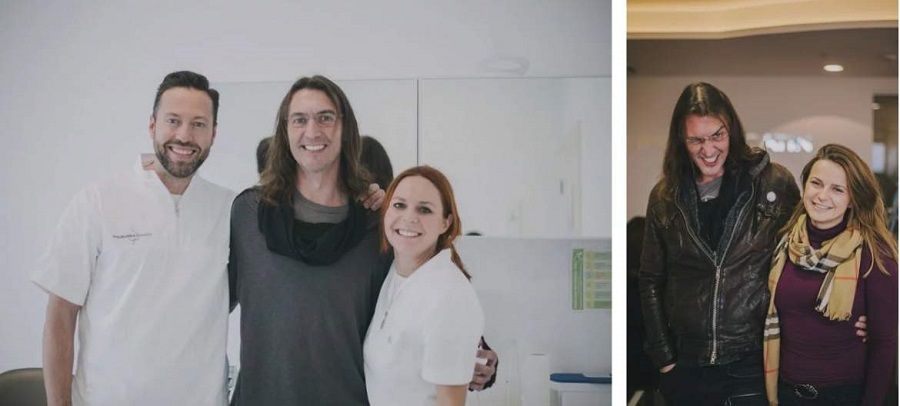
Leading clinic Bagatin is, I think, the first to link Advent in Zagreb with dental tourism this week, encouraging Zagreb's foreign tourists to visit their clinic while they are visiting Zagreb's famous Christmas market. Bagatin is offering free consultations to foreign guests and also has the capacity to deal with the dental work at short notice, so the chance to come to Croatia for an Advent experience and leave with a brand new smile - the savings of which more than fund the entire trip - is a concept that more tourists will be investigating as word about Croatian healthcare and tourism combinations continues to spread. One man who can vouch for this winning formula is an American called Carl, whose dental experience at last year's Advent in Zagreb was not only the trip of a lifetime, but also quite literally life-changing. It is probably the best Croatian tourism promotion story I have ever read, and certainly a heartwarming tale. Read Carl's story here. To learn more about dental treatment at Bagatin Clinic, which will be opening a clinic in Split early next year to cater to the huge tourism market in the Dalmatian capital, click here.
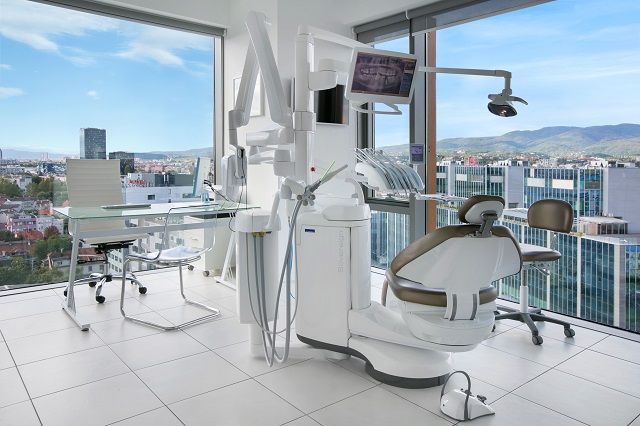
While affordability and excellent care are two of the cornerstones of the Croatian medical tourism industry, so too is speed. In Carl's case, above, the prescribed work back in the United States was planned over a two-year period, while he got a completely new mouth in just 10 days in Zagreb last winter. With a little forward planning, the chance exists to get all required dental care done over the holiday period, while still enjoying the magical festive atmosphere. And the medical options are not restricted to dental tourism. Croatia has, among others, outstanding eye laser surgery through pioneering clinic Svjetlost. As previously written, Svjetost produces major savings as well as very quick treatment, including one example of an Italian patient who underwent FemtoLASIK surgery on both eyes. The procedure was entirely painless, took 5 minutes per eye, and the patient was free to travel with perfect vision after a check-up 24 hours later. The cost of the surgery in Italy? About 6,500 euro, compared to 1,700 in Croatia.
Advent in Zagreb and medical tourism in Croatia - two Real Madrid stars in Croatia who are beginning to gel together, a partnership which will bring benefits to all.
To follow the latest from the Croatian medical tourism scene, follow TCN's dedicated coverage here.
Pannonian Health Cluster Developing Medical Tourism in Eastern Croatia
Nine months ago, the first health tourism cluster in eastern Croatia was presented, called Pannonian Health, which today brings together twelve members of different health, tourism and business profiles, and whose main goal is to develop and promote the town of Osijek and eastern Croatia as new desirable destinations for health and tourism, reports Glas Slavonije on November 22, 2018.
During this time, the cluster has developed a strategy and opened up for new companies that see their interest in health tourism. The cluster manager Manuel Magdić explained who are the ideal potential partners for this business and promotion concept.
Who are currently members of the Pannonian Health Cluster and what are the benefits of being a member?
We currently have twelve members, from the field of health services, hospitality and accommodation services, as well as transportation, education and information technology. Our members are Air Pannonia, Bizovačke Toplice Spa, Čes Dental Centre, Lege Artis Polyclinic, Maksimilijan private accommodation services, Edukos Instruction Centre, Dr. Balog Eye Polyclinic, Dr. Saša Đukić Dental Medicine Clinic, Svijetli Dvori winery, Szabo winery, and companies providing us with IT support, Ofir and Betaware. We have decided that the founders and their representatives are members of the cluster steering committee.
We are open to all other companies which see their interest in being part of the Pannonian Health cluster, provided they operate in the fields of medicine, transportation, catering and accommodation services and entertainment, and that their ideas and diversity can contribute to our development.
The basic benefit of being a cluster member is the promotion of business activities through available marketing channels at the national and international level. This includes creating a complete company profile in German and English on the cluster’s website, with the possibility for direct communication with customers, ads on social networks such as Facebook and Instagram, Google AdWords advertising, printed promotional brochures, leaflets and booklets, as well as the presentation of companies at health fairs and conferences. Many may not know this, but the cost of attending conferences and fairs on health tourism with the opportunity to present your business is exceptionally high, so the cluster is a perfect opportunity for companies to present their offer to international clients. All members are represented equally with other members.
Do you have the initial feedback from foreign agencies and tourists? Have you already seen the first results of being part of a cluster?
“Ten days ago we were in Turin, and last month in Austria. The feedback is excellent because most European countries have a positive perception of Croatia. Our goal is to connect members with international agencies and providers so that they send potential customers to our region. That was our task in Austria, but also in Crikvenica, where we participated in a conference organized by the Kvarner cluster, learned from their experiences and experiences of successful destinations in the field of health tourism such as Malaysia. We had the opportunity to get introduced to some of the agents from Europe, with whom we immediately got in touch.
For now, we have individual visits to our members, mostly from Austria and Germany. There are also many of our people who work abroad and are emotionally linked to Croatia and come here with their whole families, enjoying the tourist offer of our region. We see them as our strongest ambassador. We are confident that we have high-quality professionals in this town and region and that we can offer top-notch service.
What is the vision of the Pannonian Health cluster’s development?
There are several clusters in Croatia presenting and integrating the health tourism offer of particular regions. Our long-term plan is to connect with as many such organizations as possible to present the whole of Croatia and the Pannonian region as a desirable destination for health and tourism. As the name of the cluster says, we do not want to limit ourselves just to Slavonia and Baranja in the long run. We are open for cooperation with companies from neighboring countries, the Pannonian region, Serbia, Bosnia and Herzegovina and Hungary, especially because such cooperation opens up the possibility for projects through the EU cross-border cooperation initiatives.
Are there any preconditions that future members need to fulfill to become part of the cluster?
The main precondition is to have a website translated into German and English to enable potential clients to consider whether they want to cooperate. If the website and promotional materials are not ready immediately, there is a transition period for new members. It is also important that team members speak German and English and that the company can be classified into a category such as medical services, transportation, accommodation, catering, education or entertainment. Of course, we are open to all those who can contribute to the Pannonian Health cluster with their activities and want to support this idea. We invite them to join us with their proposals, donations or some in some other way, and we will gladly introduce them as partners of Slavonia and Baranja. We also invite all tourist agencies who see their interest in health tourism to come to us.
For more on health tourism in Croatia, click here.
Translated from Glas Slavonije (reported by Nefreteta Z. Eberhard).
Can Croatian Officials Unite to Exploit Huge Medical Tourism Opportunity?
November 15, 2018 - All the experts agree on two things about the Croatian medical tourism industry: it has huge potential, and all stakeholders must come together to make it happen. Can they?
If ever there was a golden opportunity to be exploited, this is it. And the main thing which is holding Croatia back from building a potential billion-dollar industry is focus and coordination of private business and Croatian State institutions, whose very mandate is to make initiatives like this happen.
Without giving away too many State secrets, I don't think it is major news that many State officials are more concerned about maintaining their position and not working too hard than actually doing the job that they are paid to do. Not a criticism, but a fact. In fact, this article is not aimed to criticise, but rather an experiment to see if Croatian officials and institutions can rise above their own self-interest and narrow viewpoints to come together to build an industry which all experts agree has massive revenue potential for Croatia, an industry experts say Croatia can be among the best in the world. And they all agree that the main thing holding Croatia back from developing its medical tourism into a global player is... Croatia itself, and its inability to unite for the common good - the subject of a recent TCN editorial. Croatia and its inability to unite in anything unless Croatia is being attacked.
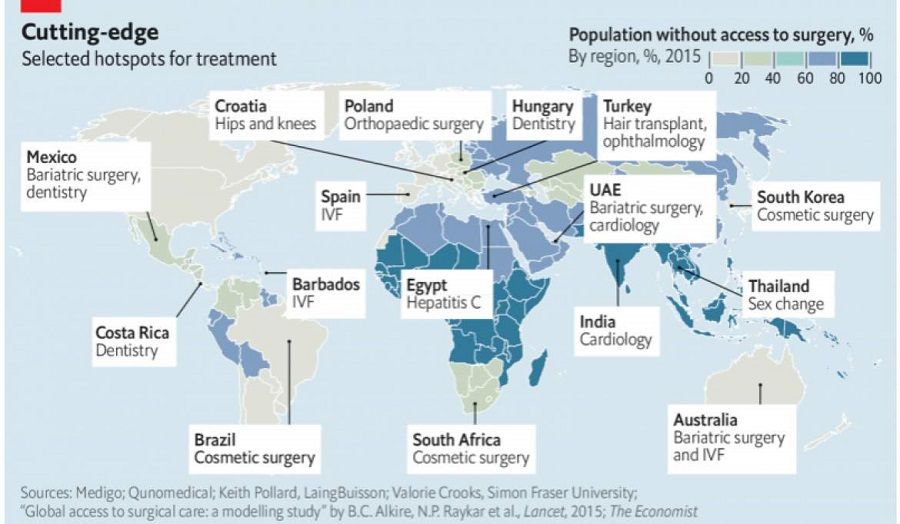
(The Economist has Croatia on the global medical tourism map)
The Croatian economy is in severe trouble, its youth emigrating en masse, and its politicians more interested in keeping things as they are than making a positive change. There is so much skepticism here about the ability to get things done for the common good rather than the private interest, but this golden opportunity with medical tourism offers us all an opportunity to publicly and transparently see if our elected and employed officials have any interest in doing the jobs they are well-paid to do to play their part in bringing this initiative forward. The potential of Croatia's medical tourism is not a secret to the authorities - the Director of the Croatian National Tourist Board picked up an award for it at last year's HTI conference.
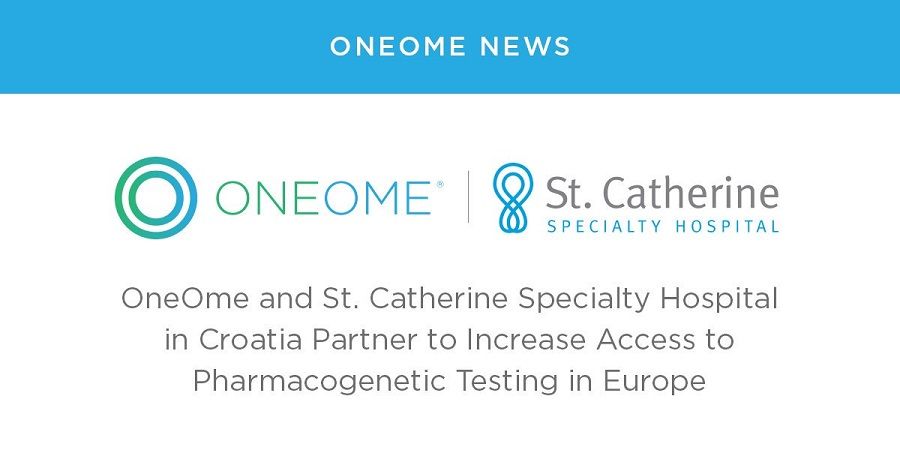
(Co-founded by Mayo Clinic, OneOme has partnered with Croatia's St Catherine Specialty Hospital to increase access of its groundbreaking pharmacogenetic testing in Europe. Learn more here.)
Below I will paint the picture of the opportunity through the eyes of global experts, all of whom have been in Croatia in the last month supporting Croatia's medical tourism industry. After that, I will show exactly how it can be done through a real-life example of a country which was also having unity issues, but which is now regarded as the best medical tourism destination in the world. Finally, I will be sending this proposal to the various tourism, business and health stakeholders in official positions, inviting their participation and feedback, and then publicly providing an update on who is, or is not, interested in working to realise this outstanding opportunity for Croatia.
Part 1 - Croatian Medical Tourism - What do the Global Experts Think?
"Croatia COULD – if it really got its act together – it could take 25% of the Hungarian dental tourism business, if it got together and did things properly. I don’t see why not. I come here a lot. I like Croatia very much." Keith Pollard, Editor in Chief of International Medical Travel Journal. Read TCN's interview with Keith at the Crikvenica International Healthcare Tourism conference last week.
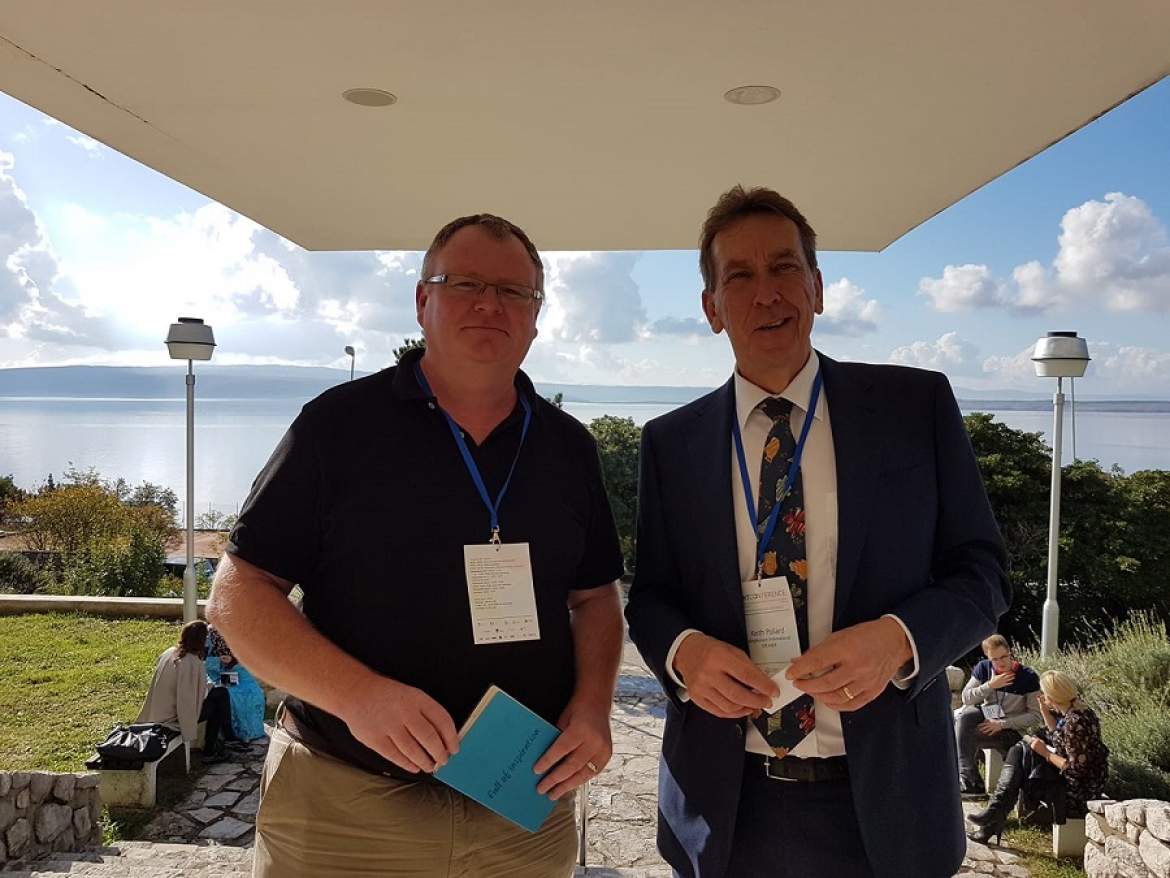
(Keith Pollard, left, Editor in Chief of International Medical Tourism Journal, with TCN in Crikvenica last week)
"This industry is huge, and rising. The official number touted around is that medical tourism is about $60 billion globally, but nobody is truly tracking the numbers, and this number comes from planned medical tourism trips. In India, for example, there are so many Indians outside the country who return home and have medical procedures. If we include these numbers, the figure must be well over $100 billion a year. Croatia can get a nice piece of that." Dr. Prem Jagyasi, global medical travel speaker, in an interview with TCN at the Adriatic Health and Tourism Investment conference in Zagreb recently. Read the full interview with Dr. Prem.
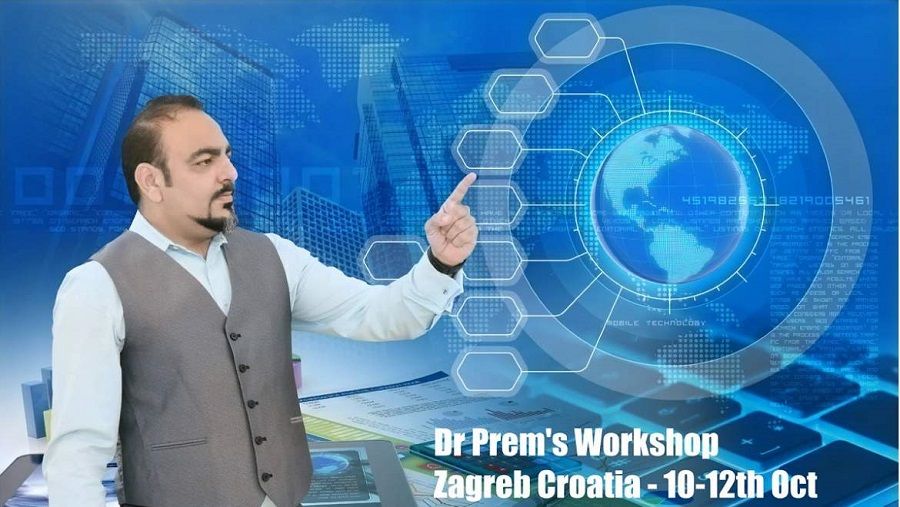
(Dr. Prem Jagyasi took part in the 2nd Adriatic Health and Tourism Investment conference in Zagreb last month)
Where could Croatia be in 5 years?
"Without doubt in the top 10 medical tourism countries in the world, if they get themselves properly organised." Drl. Prem Jagyasi, in the interview above.
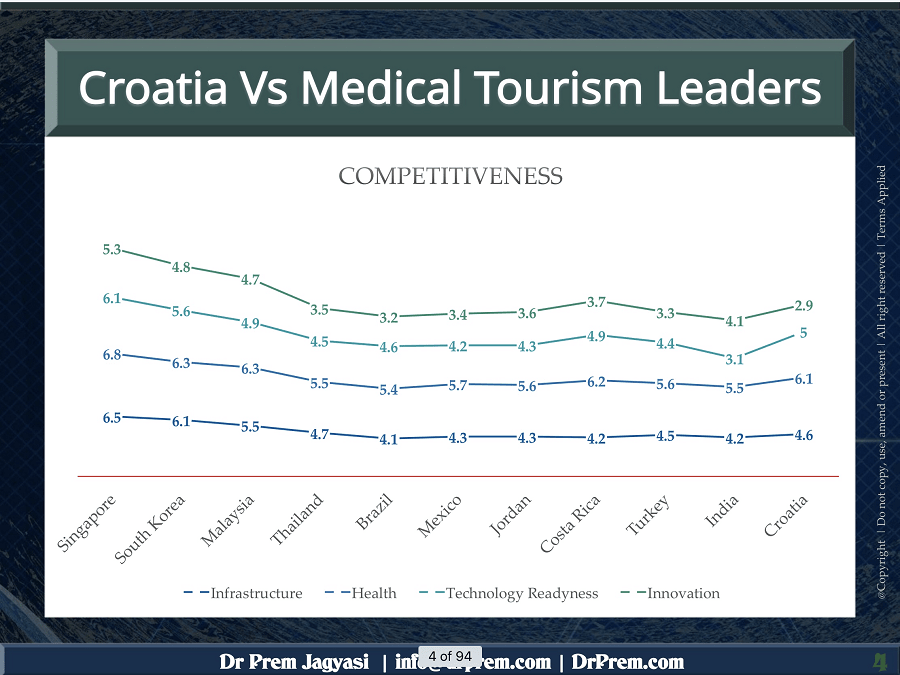
"The main lesson I learned from my travels and visits to medical tourism destinations and hospital inspections: Collaborate or die. Malaysia was no different from Croatia, they had to face the decision of being serious about the business, or just being a bunch of hospitals competing with each other. A bunch of hospitals competing with each other doesn’t help any country in creating a solid brand for its medical tourism industry." Global medical travel branding guru Ilan Geva in Crikvenica. Read the full TCN interview with Ilan here.
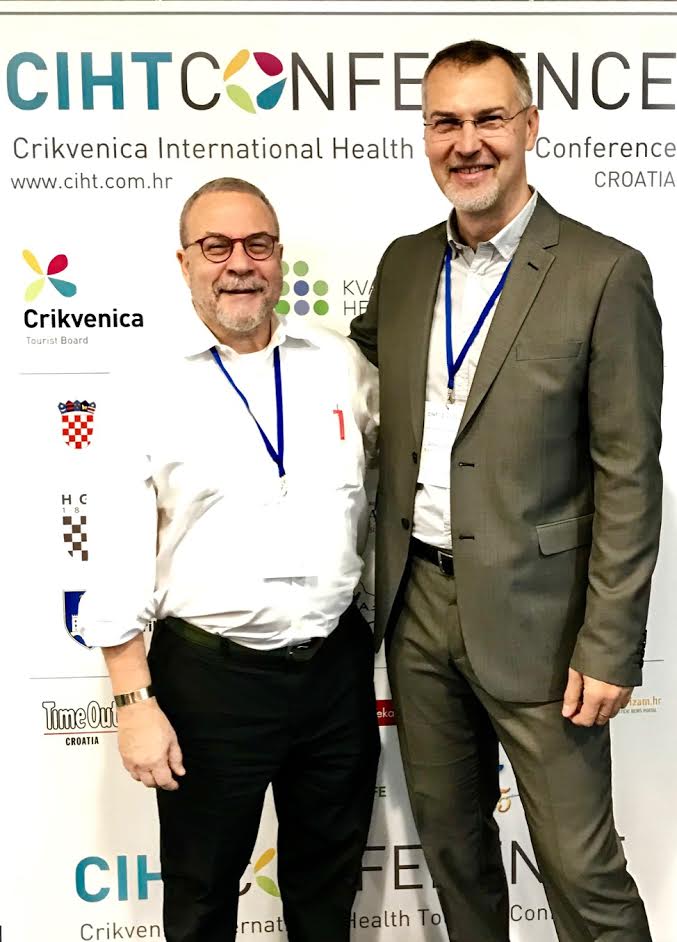
(Ilan Geva, left, at the Crikvenica International Health Tourism conference last week)
"The role of the politicians is to make the legislation easier, find a budget for health tourism, and then get out of the way." Ilan Geva.
"Malaysia overcame the obstacle of politics, budget allocation, and legal implementation and made sure that all stakeholders know exactly what they are supposed to do within the medical tourism activity. Clear, transparent and efficient. Croatia is still miles away from that situation. Building a national brand is impossible under these circumstances because there is no brand…only a bunch of providers spread all over the country."
"One of the most common sentences I hear in Croatia (as well as in other Eastern European countries) is the sentence: “We have no budget”. That has to change immediately. No one gains anything with no investment. I heard that there is actually money being spent already, the question is who spends it, on what, is it transparent, and does it deliver a clear benefit to all Croatian medical tourism practitioners. Some people complained that the Zagreb Tourist Board has commissioned an American association to do a research, or feasibility study well over a year ago paid a six-figure amount (in U.S. Dollars) and yet no one has seen anything. That doesn’t contribute to the effort of building a consensus and collaboration in this industry." Ilan Geva.
Notice one common theme? Coming together. Getting its act together.
Where Does Croatia Look to Learn Lessons about Developing Its Health Tourism Industry?
"Malaysia without a doubt is the country which has got it together. We have the IMTJ awards and Malaysia has won Destination of the Year three out of four times. They have managed, somehow, perhaps because of the culture, to get all the bodies and stakeholders together. I have been there and been through the process, and it is real." Keith Pollard, Editor in Chief of International Medical Travel Journal.
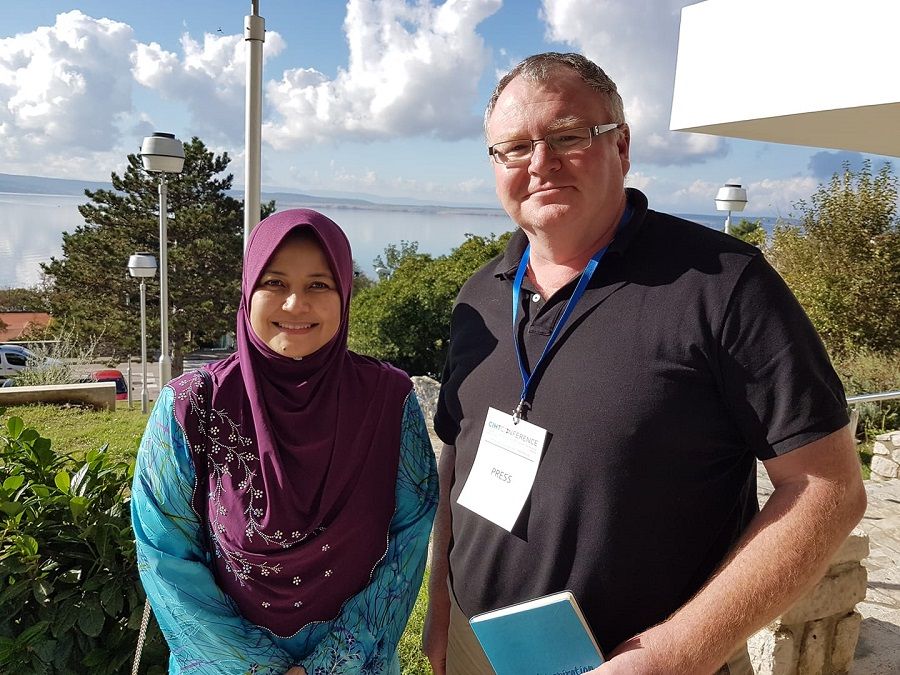
As luck would have it, Sherene Azli, CEO of the Malaysian Healthcare Travel Council, which runs the most successful medical tourism in the world, according to recent IMTJ (and other) awards, was also a keynote speaker in Crikvenica, and Sherene kindly agreed to an interview with TCN, which you can read in full here.
The key to Malaysia's success is unity and togetherness. Sherene runs MHTC as a public-private company within a department of the Ministry of Health, reporting directly to the Ministry of Finance. She coordinates all the stakeholders involved, which takes up 90% of her working hours, with the result that from the moment the patient arrives at the dedicated medical tourism arrivals lounge at a Malaysian airport until the moment of departure, all stakeholders are working to provide the very best service to that patient. As Sherene wrote:
"The reality is, it can only be done TOGETHER with all our stakeholders. Hence our tagline of #kitamenangsamasama which means #wewintogether #MHwinstogether."
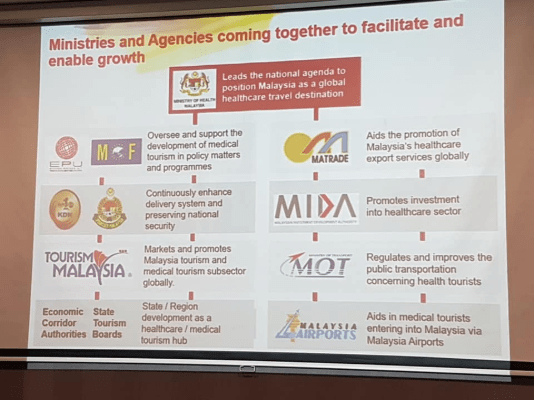
As Ilan Geva noted above, Malaysia has succeeded but the process was far from easy. But it can be done. My question to the stakeholders in Croatia (look at the agencies in Malaysia pulling together in the slide above), can it be done in Croatia? Are you ready to work for the good of Croatia, to provide wealth and jobs, to make Croatian medical tourism one of the top 10 - or better - in the world?
What is Happening with Croatian Medical Tourism at the Moment?
To say that nothing was being done would be incorrect - there is a LOT happening on the ground. To say that it was in any way coordinated however...
There is a video...
The Croatian National Tourist Board explained in Crikvenica that it had invested 4 million kuna in medical tourism, without providing details. As Ilan Geva noted above, the Zagreb Tourist Board has apparently spent at least $100,000 on a special study of medical tourism, but no more details are available. The Ministry of Tourism speaks of the importance of medical tourism and it being included in a strategic document, again without any specific details. I am sure that the Ministry of Health has a position on all this as well, but I have not been able to ascertain it.
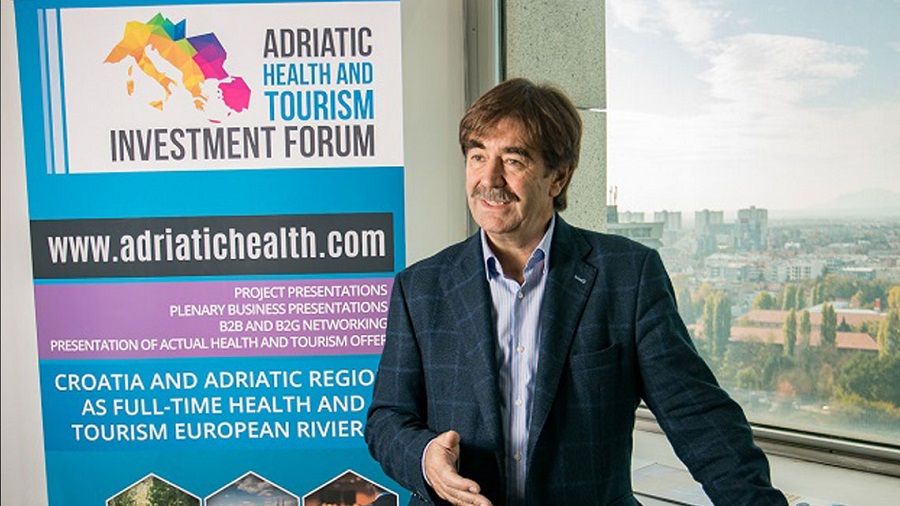
(There is plenty of intereest and energy in promoting the Croatian medical tourism industry, if only there was a coherent strategy. Miljenko Bura, organiser of the 2nd Adriatic Health and Tourism Conference in Zagreb)
Private clinics have been moving ahead, frustrated at the lack of official coordination. The Kvarner Health Cluster is the most globally recognised, but there are other health clusters as well, notably in Zagreb. Some private clinics are making real inroads on the international stage - St Catherine Specialty Hospital, Bagatin Clinic and Svjetlost, and their marketing investments for private businesses are huge. The problem, as Ivan Gabric of Svjetlost said in Crikvenica is that "a private business cannot brand a destination."
Various, fragmented initiatives, all of which result in one thing - confusion about the Croatian medical tourism market internationally, no cohesion, and clinics and regions battling against each other, rather than trying to win together to establish Croatia as a premier health tourism brand.
What if - close your eyes for a minute and imagine this - all the Croatian stakeholders came together, Malaysian-style, #zajednopobijedjemo?
Who are the Key Stakeholders to Develop Medical Tourism in Croatia?
I am, of course, not an expert, but my initial list would include:
- The various health clusters already in existence
- The main clinics
- Croatian National Tourist Board
- Zagreb Tourist Board
- Other regional tourist boards
- Key hotel groups
- Ministry of Tourism
- Ministry of Health
- Ministry of Economy
- Ministry of Finance
- Croatia Airlines
- Zagreb Airport
- Representative for the Croatian diaspora, a major medical tourism potential market
- Media/PR/Marketing reps to help brand, promote and tell the story
What are the Next Steps for Medical Tourism Development in Croatia?
Assuming we all want to win together, Malaysian-style, here are the next steps I would take, having watched the industry quite closely over the last few weeks:
1. Bring all interested clinics and clusters together to brainstorm and agree what it is that the medical tourism sector can offer.
2. Then bring the stakeholders together to brainstorm on the potential directions.
3. Appoint an independent and capable leader to run the project, with an agency which is independent and reports to one ministry only. Give that person authority and a budget.
4. Go on a fact-finding mission to Malaysia, to learn as many lessons as possible.
5. Go on a second fact-finding mission much closer to home. To Budapest, and learn how the phenomenal Hungarian dental tourism industry operates.
6. Get the stakeholders together to brainstorm on how to implement the Malaysian and Hungarian models in the Croatian context.
I would also include in the planning a provision of some tax or percentage profit to go from the private medical tourism sector, if it is supported as above, to be paid to the public healthcare system. That way, if Croatia works to develop its medical tourism industry, the medical tourism industry can boost the coffers of the public healthcare system. As they say in Malaysia, We Win Together.
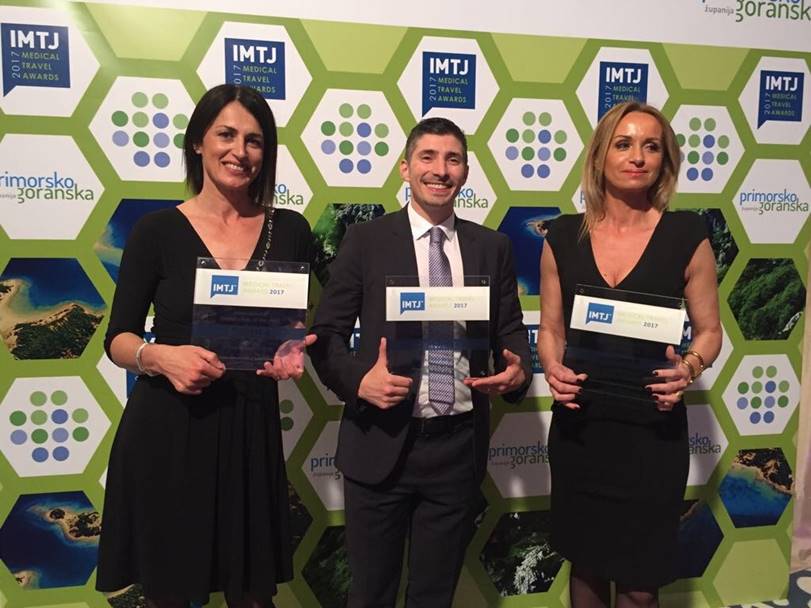
(Croatian health tourism quality on the international stage - IMTJ award winners, Rident, Bagatin Clinic and St Catherine Specialty Hospital)
"The biggest challenge is the lack of vision. Where we want to be as a destination in 2025 or 2030 is the key point to position Croatia as the top medical tourism destination in the future. We need to know where we are going and how we can get there. We have great clinics in Croatia, but nobody knows about us internationally and this we can change if we work together (Public and private sector) on positioning Croatia as a European medical tourism hub. " Ognjen Bagatin, CEO of Bagatin Clinic.
The private medical tourism sector is ready to move forward with this process to put Croatia in the top ten on the global map. Let's find out if Croatia's state institutions are equally motivated. I will send this article with an invitation of collaboration to the various stakeholders, and report back on progress in due course.
If you would like to get involved with this initiative to promote Croatian medical tourism, contact us at This email address is being protected from spambots. You need JavaScript enabled to view it., with Subject - Health.
To follow the latest TCN coverage of medical tourism in Croatia, click here.

